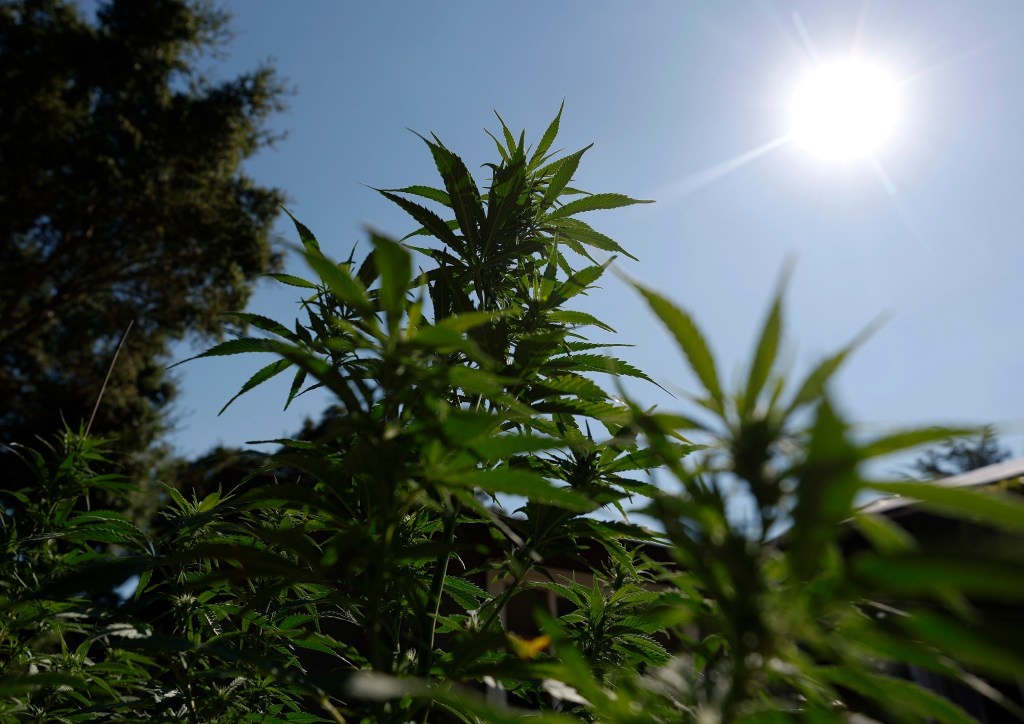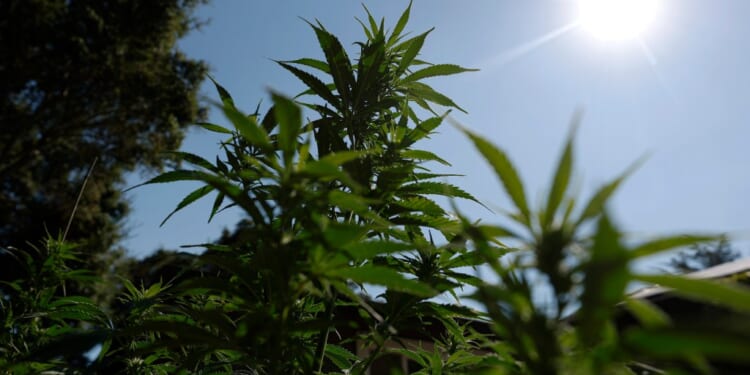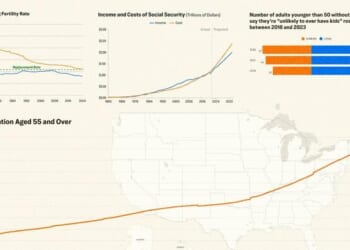
“Before 2018, there was not a very big hemp industry in the United States,” Jonathan Caulkins, a professor of operations research and public policy at Carnegie Mellon University’s Heinz College, told TMD. The existing regulatory structure made it difficult for farmers to grow hemp legally, so most hemp used in non-intoxicating products had to be imported.
“The ambition with the [2018] farm bill was, ‘Hey, we’ve got fantastic farmers. Let’s create a way for us farmers to grow the seed and the fiber and the other non-intoxicating uses of the plant,’” Caulkins said.
The bill attempted to create a legal distinction between: 1) Hemp cultivation for industrial purposes and cannabidiol (CBD) products—a non-psychoactive chemical present in cannabis, and 2) Intoxicating cannabis, scheduled by the Drug Enforcement Administration (DEA) as a Schedule I controlled substance, which the DEA defines as “drugs with no currently accepted medical use and a high potential for abuse.”
Congressional members saw an opportunity to give “farmers a new cash crop,” Robert Mikos, an expert in drug law and policy at Vanderbilt Law School, told TMD. “I think that they really anticipated those two uses,” he said. “To some extent, it was industrial hemp—kind of textiles and so on—but CBD, I think, was the big draw.”
Specifically, the bill defined hemp as Cannabis sativa L: a species of the plant that has, at most, a 0.3 percent concentration of delta-9 THC, marijuana’s primary intoxicating ingredient, on a dry-weight basis. There are other compounds (or cannabinoids) present in the plant, such as delta-8 and delta-10 THC, which can also induce psychoactive effects, but they are present at much lower levels than delta-9 THC, so Congress wasn’t concerned about them.
But once the 2018 bill passed, innovators realized they could utilize the other compounds that lawmakers had overlooked.
“It turns out that it’s relatively easy to turn one cannabinoid into a different cannabinoid,” Caulkins said. “You can turn the CBD into delta-9 [THC], which then is illegal under the federal farm bill, but that’s kind of at the end of the production chain,” he noted, adding that “it’s easy to hide the labs that were doing that.”
“But even more clever,” Caulkins said, “you can turn the CBD into delta-8 THC” or other cannabinoids with delta-9-THC-like psychoactive effects. Under the federal definition, it would be classified as legal hemp despite its intoxicating properties.
New lines of THC products have allowed consumers numerous ways to get high with relative ease. In many states, people can now pick up gummies, syrups, popsicles, popcorn, vaporizers, and even protein powder. They’re available in gas stations, convenience stores, or online—and despite being a psychoactive product, derived from the cannabis plant, they’re perfectly legal.
Among the most popular products are THC beverages, with Whitney Economics—an economic consulting firm specializing in hemp industry research—predicting in a September report that legal sales totaled between $1 and $1.3 billion in 2024. The report says there are between 500 and 750 THC beverage brands, and less than half of them sell through marijuana dispensary stores.
And this wasn’t the only loophole in the farm bill. By measuring THC content through dry-weight concentration, you could make potent, highly intoxicating edible and beverage products, which were still legal. Jeffrey Singer, a Cato Institute senior fellow in health policy studies, noted in an article that the weight-based loophole is “all about math, not plant chemistry.” As he wrote, “A five-gram gummy can legally contain up to 15 milligrams of THC and still qualify as hemp because that’s only 0.3 percent of its weight. The same logic applies to drinks: a 12-ounce seltzer weighing about 340 grams could contain around 10 mg of THC and remain within the limit.”
These products are now widespread, but because they exist through loopholes, they skirt regulations, taxes, licensing requirements, and even quality control measures. Alex Brill, a senior fellow at the American Enterprise Institute, told TMD that the hemp market is functionally unregulated, “and I think there’s some legitimate safety concerns around some of those products.”
“One can argue about whether [hemp-derived THC products] should be regulated strictly or loosely,” he added, “but either way, these types of products should be subject to some oversight as a safety matter, and should be regulated in a similar fashion if they have similar risk profiles.”
Even the famously libertarian Sen. Paul, who pushed to keep the loophole as is, acknowledged to reporters on Tuesday that “there is a problem” in terms of a lack of federal protections. “The hemp industry understands that the gas station stuff that’s really high in THC and sold to children needs to be off the market,” he said, noting that individual states can also provide a regulatory framework independent of the federal government, such as age restrictions, maximum THC levels, and labeling requirements.
Paul added, “But instead of fixing that problem and leaving the legitimate hemp industry, [GOP Sen. Mitch McConnell is] going to destroy the entire industry, including the plants.”
Both McConnell and Paul supported the 2018 farm bill definition, but now find themselves on opposing sides. Earlier this year, McConnell criticized the “unintended consequence that has allowed for intoxicating hemp-derived synthetic products to be made and sold.” More recently, on the Senate floor Monday, McConnell emphasized the need for “protecting our children” from psychoactive hemp products.
The updated language provides a narrower definition of hemp, while also creating separate legal categories for industrial hemp and hemp-derived cannabinoid products. For example, the THC concentration cap will be measured by the total content of all THC cannabinoids, not just delta-9, and all legal categories of hemp exclude any cannabinoids “synthesized or manufactured outside the plant.” To counter the edibles and beverages loophole, the new law set a 0.4 mg total THC limit for every container.
Paul argued that these new rules, which he attributed to McConnell, would mean the end of both intoxicating and non-intoxicating hemp companies. “The language that Sen. McConnell has put into the bill basically will kill the hemp industry nationwide,” Paul told reporters on Tuesday. “He’s changed the definition of the plant, so every hemp plant in America will have to be destroyed.”
The changed federal hemp rules won’t take effect for a year, but Beau Whitney—founder of Whitney Economics and the chief economist for the National Industrial Hemp Council and the National Cannabis Industry Association—said that states may look to ban these products sooner now that Congress has acted. “The impact is not, in my mind, going to occur in a year,” he told TMD. “It’s going to have an immediate effect. … This is going to start impacting businesses very, very, very quickly.”
According to Chris Lindsey, the vice president of policy and state advocacy at the American Trade Association of Cannabis and Hemp, the changes will not curb domestic production of non-intoxicating hemp products. “The bill clearly distinguishes between intoxicating and non-intoxicating products, synthetic and natural products, and industrial and consumer products,” he said on November 9. “These distinctions create regulatory lanes for hemp-derived products and address perceived loopholes.”
But the market for intoxicating products is now vastly larger than the industrial hemp sector. Per a November news release from Whitney Economics, only 27 percent, or $7.67 billion, of that total market value is in non-intoxicating THC production, such as industrial hemp.
What advice is Whitney giving U.S.-based hemp companies? “I’m, like, telling them, look to other countries, because there’s no opportunities now for hemp in the U.S.”

















